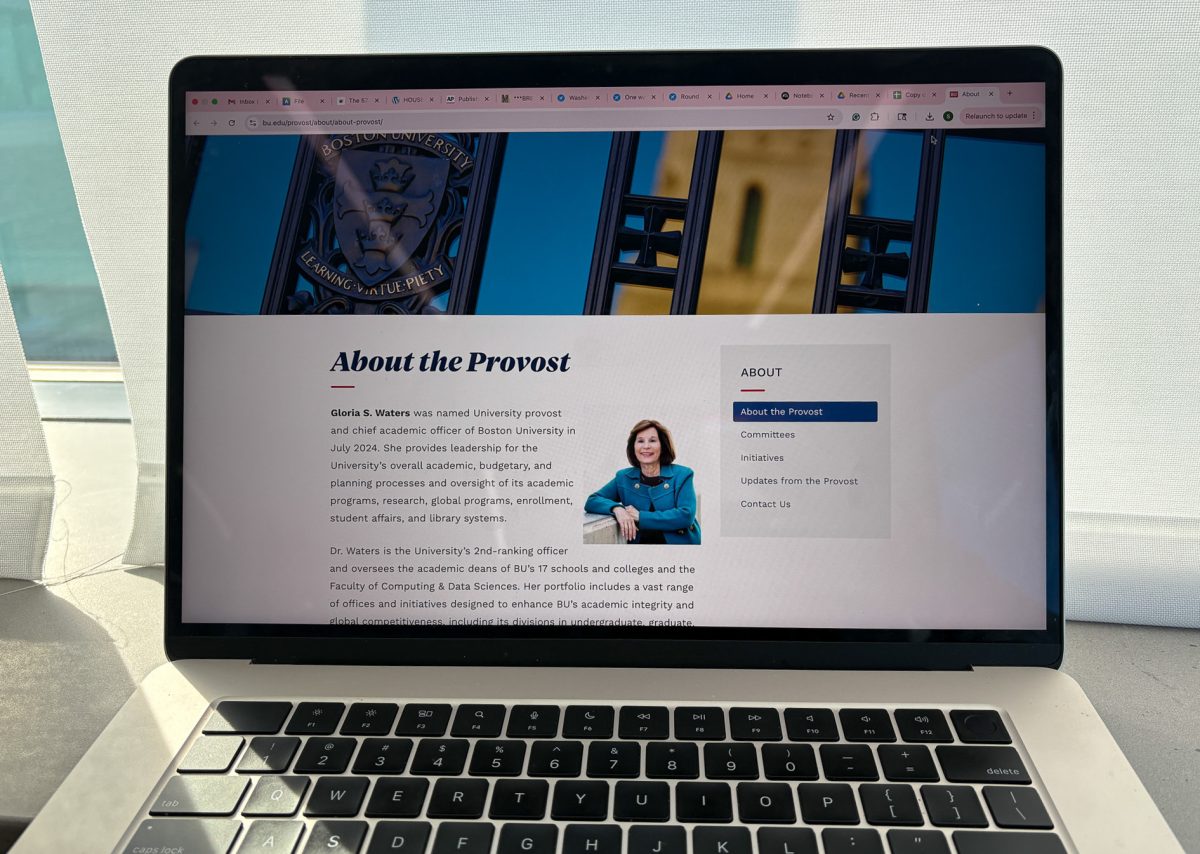Boston University student Brianna Bloodgood’s professor was off on a tangent in lecture. It drove Bloodgood to give into the temptations of her laptop.
Though Bloodgood, a College of Arts and Sciences freshman, was opening her laptop to check up on her email and Facebook account, she said she thinks having it in class is a necessary evil.
“I think [using laptops] makes it impossible to fall behind because you type faster than you can write,” she said. “But the temptation is always there.”
Students’ increased attachment to their laptops has raised questions about how well they can multitask in lectures, especially with the many distractions of social networking sites.
While students use their laptops to take notes, some professors said they have noticed their students becoming absorbed in other activities, such as online shopping, checking email and social networking.
“Obviously this has been an issue facing students long before Facebook,” said Catherine Harris, a professor of psychology. “When I was in college I would bring reading material, I would bring a notebook, or if I didn’t I would be bored.”
Harris, who teaches developmental psychology, said the issue of multitasking in lectures involves a number of factors, one being that professors fail to present engaging and relatable material.
“The burden is on me to make the lecture engaging,” she said. “If I’m a standup comedian, I have to earn that audience. If I’m a musician, I have to earn it. Why shouldn’t professors have to work for it?”
The nature of multitasking, however, has also changed with sites like Facebook, Harris said.
“That’s a lot more attention-grabbing than writing a letter to your girlfriend or making a to-do list,” she said. “You’re getting a response and getting a reward. With Facebook, there are so many rewards . . . so many likes and responses.”
In spite of the potential distractions, many professors said they do not prohibit laptops in their lectures.
William Keylor, who has taught History of International Relations Since 1945, said he has “no objection” to his students using laptops. While he said he does not doubt that students might be on distracting sites like Facebook, he also said hopes that his students will use their laptops to take better notes and look for course material online.
Some professors said they have taken steps to prevent the Internet from disrupting lecture.
Tammy Vigil, an associate dean in the College of Communication, instructed her teaching assistants to walk around her Introduction to the World of Communication class and make sure students were not engaging in social networking or other distracting online activities.
“I know that there have been times when past colleagues have considered [a ban], and I certainly understand why they would do that,” Vigil said. “It’s not something that we choose to do in the 101 class for a number of reasons, but there are certain things we try to do to help.”
However, she said that laptops can be an effective tool to be used during class if the privilege is not abused.
“For some people, using laptops is a lot more effective,” Vigil said. “The problem is not when people abuse the privilege [and browse the web], but when they do things that are distracting to others.”
CAS sophomore Caroline Patrick said she checks Facebook and her email account occasionally without it interfering too much in class.
“I generally use my laptop to take notes faster,” Patrick said. “I do find myself looking at [websites], but I think I can multitask.”
Other students, however, stick to pen and paper, avoiding the temptation altogether.
“If I handwrite my notes, I pay attention a lot more,” said CAS freshman Brandon Jewart. “I feel my study habits are better, and I’m getting better grades.”
Harris said that she feels it’s up to the students to strike a balance.
“Students should think about what their goals are for the classroom,” Harris said. “If they feel that it’s necessary, they should bring in some low-demanding chore that allows them to keep an ear open.”
























































































































